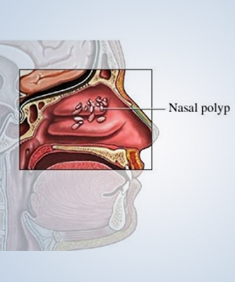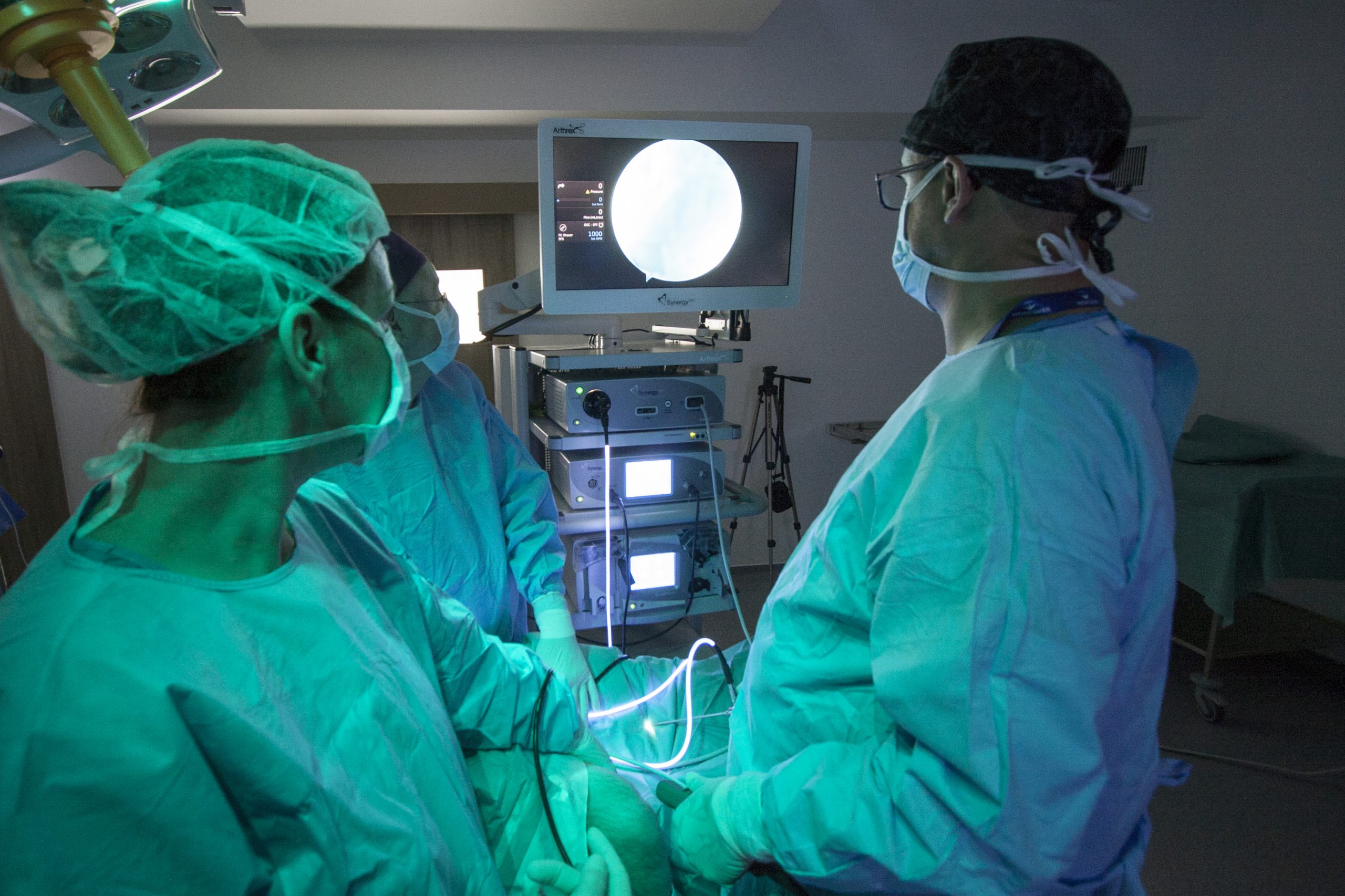Nasal polyps are non-cancerous, painless, teardrop or grape shaped swollen outgrowths on the lining of the nose or sinuses. They develop as a result of chronic or reccurrent rhino-sinusitis, due to asthma, allergies, drug sensitivity or certain immune disorders.
While small nasal polyps may not cause any symptoms, larger growths or groups of nasal polyps can block the nose and lead to breathing problems, a loss of the sense of smell, and infections. Large nasal polyps can also change the shape of the nose itself.
Chronic rhino-sinusitis is an inflammation of the nose and sinuses (lasting usually for at least 3 months) that does not improve sufficiently with pharmaceutical treatment. Symptoms of chronic rhino-sinusitis include a blocked and/or runny nose, facial pain, headache, reccurrent lower respiratory tract infections, and bronchial asthma.




